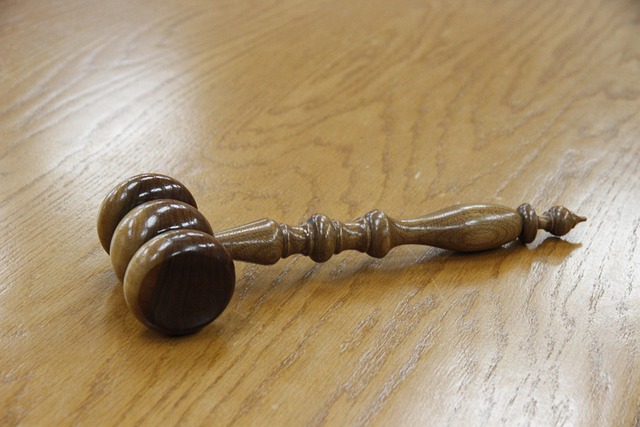Corporate Crime Investigations demand a balanced approach between uncovering evidence and respecting Constitutional Protections in Criminal Defense, safeguarding both corporate and individual rights. Skilled investigators navigate complex financial records, international jurisdictions, and sophisticated schemes using tailored criminal defense strategies while maintaining ethical standards. Key Constitutional Protections like the Fifth and Sixth Amendments are crucial for fair trials, especially in high-stakes cases. Companies facing scrutiny must balance regulatory compliance with preserving these protections, employing proactive measures like robust internal controls to deter misconduct and strategic legal navigation to ensure dismissal of charges or minimal culpability.
Corporate crime investigations are complex, multifaceted endeavors that require a deep understanding of legal frameworks and strategic navigation. This article delves into the intricate world of corporate crime, exploring critical aspects like unraveling complex cases, constitutional protections for defendants, and effective legal strategies for response. By examining these key areas, we provide valuable insights into navigating the challenges posed by corporate criminal accusations, highlighting the importance of Constitutional Protections in Criminal Defense.
- Understanding Corporate Crime Investigations: Unraveling Complex Cases
- Constitutional Protections: A Defendant's Rights in the Face of Corporate Crime Accusations
- Navigating Legal Strategies: Preparing for and Responding to Corporate Crime Investigations
Understanding Corporate Crime Investigations: Unraveling Complex Cases

Corporate Crime Investigations delve deep into complex cases where businesses or their representatives engage in illegal activities. These inquiries require a meticulous balance between uncovering evidence and respecting Constitutional Protections in Criminal Defense, vital for both corporate and individual clients. The process involves navigating intricate financial records, international jurisdictions, and sophisticated schemes designed to conceal wrongdoing.
Successful investigations demand a nuanced understanding of general criminal defense strategies tailored to the unique challenges posed by corporate crimes. Skilled investigators must gather and interpret data while ensuring their methods achieve extraordinary results without compromising ethical standards or legal integrity. This meticulous approach is crucial for upholding justice and maintaining public trust in an era where corporate misconduct can have far-reaching consequences.
Constitutional Protections: A Defendant's Rights in the Face of Corporate Crime Accusations

In the face of corporate crime accusations, defendants enjoy certain Constitutional protections designed to safeguard their rights and ensure a fair trial. The Fifth Amendment, for instance, provides protection against self-incrimination, giving individuals the right to remain silent when faced with criminal allegations. This right is crucial in high-stakes cases, where corporate entities might attempt to coerce or entrap employees into providing damaging testimony.
Additionally, the Sixth Amendment guarantees the right to an attorney, which is essential for navigating complex legal landscapes and constructing a robust defense strategy. These protections are particularly vital when considering the unprecedented track record of such investigations, where avoiding indictment requires meticulous planning and aggressive legal representation. Effective criminal defense strategies in corporate cases must balance these rights while challenging the evidence presented by prosecutors.
Navigating Legal Strategies: Preparing for and Responding to Corporate Crime Investigations

Navigating Legal Strategies is a critical aspect when preparing for and responding to Corporate Crime Investigations. Companies facing scrutiny must be aware of their rights and obligations, balancing compliance with regulatory requirements and preserving the Constitutional Protections in Criminal Defense. Across the country, legal teams are honing strategies to protect their clients from wrongful accusations, focusing on gathering evidence that refutes allegations and ensuring due process is followed.
A proactive approach includes implementing robust internal controls and transparency measures to deter potential misconduct. For his clients, this may involve complete dismissal of all charges if the investigation uncovers no wrongdoing or minimal culpability. However, responding effectively requires a strategic balance – understanding the legal landscape, anticipating regulatory pressures, and advocating fiercely for the company’s interests.
Corporate crime investigations present complex challenges, testing the legal system’s ability to balance justice with protecting constitutional rights. Understanding these intricacies is vital for both investigators and defendants. By knowing their rights under Constitutional Protections in Criminal Defense, companies can navigate legal strategies effectively during such inquiries. This ensures a fair process while upholding the rule of law, ultimately fostering trust in a transparent and just legal framework.






